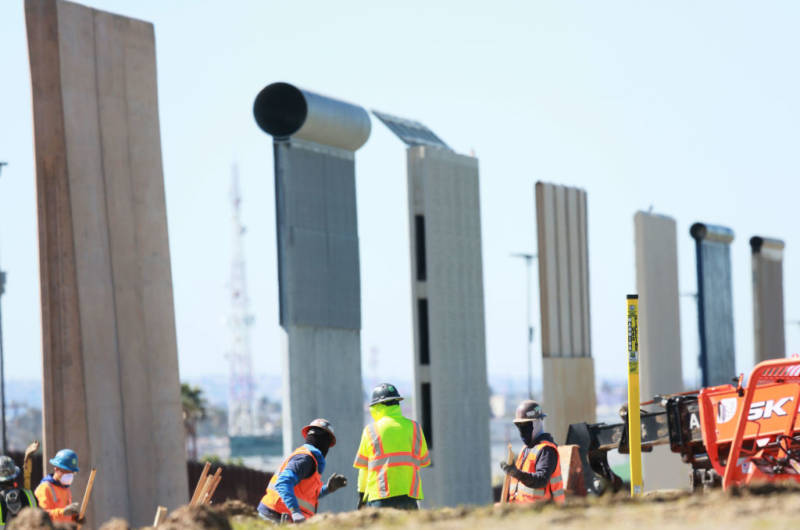The Defense Department has already transferred the counterdrug money. Patrick Shanahan, the acting defense secretary, is expected to decide any day whether to transfer the military construction funds.
The president’s adversaries say the emergency declaration was an illegal attempt to ignore Congress, which authorized far less wall spending than Trump wanted. The administration said Trump was protecting national security as unprecedented numbers of Central American asylum-seeking families arrive at the U.S. border.
The administration has awarded 11 wall contracts for a combined $2.76 billion — including three in the last two months that draw on Defense Department counterdrug money — and is preparing for a flurry of construction that the president is already celebrating at campaign-style rallies.
The Army Corps of Engineers recently announced several large contacts with Pentagon funding. Last month, SLSCO Ltd. of Galveston, Texas, won a $789 million award to replace 46 miles of barrier in New Mexico — the one that Gilliam blocked on Friday.
Last week, Southwest Valley Constructors of Albuquerque, New Mexico, won a $646 million award to replace 63 miles in the Border Patrol’s Tucson, Arizona, sector, which Gilliam did not stop. Barnard Construction Co. of Bozeman, Montana, won a $141.8 million contract to replace 5 miles in Yuma that Gilliam blocked and 15 miles in El Centro, California, which he did not address.
Gilliam’s ruling gives a green light — at least for now — for the administration to tap the Treasury funds, which it has said it plans to use to extend barriers in Rio Grande Valley.
California Attorney General Xavier Becerra, a Democrat and frequent Trump adversary, didn’t comment directly on his defeat but congratulated the ACLU and its clients “in securing this critical victory for our states and communities.”
Trump inherited barriers covering 654 miles , or about one-third of the border with Mexico. Of the 244 miles in awarded contracts, more than half is with Pentagon money. All but 14 miles awarded so far are to replace existing barriers, not extend coverage.

